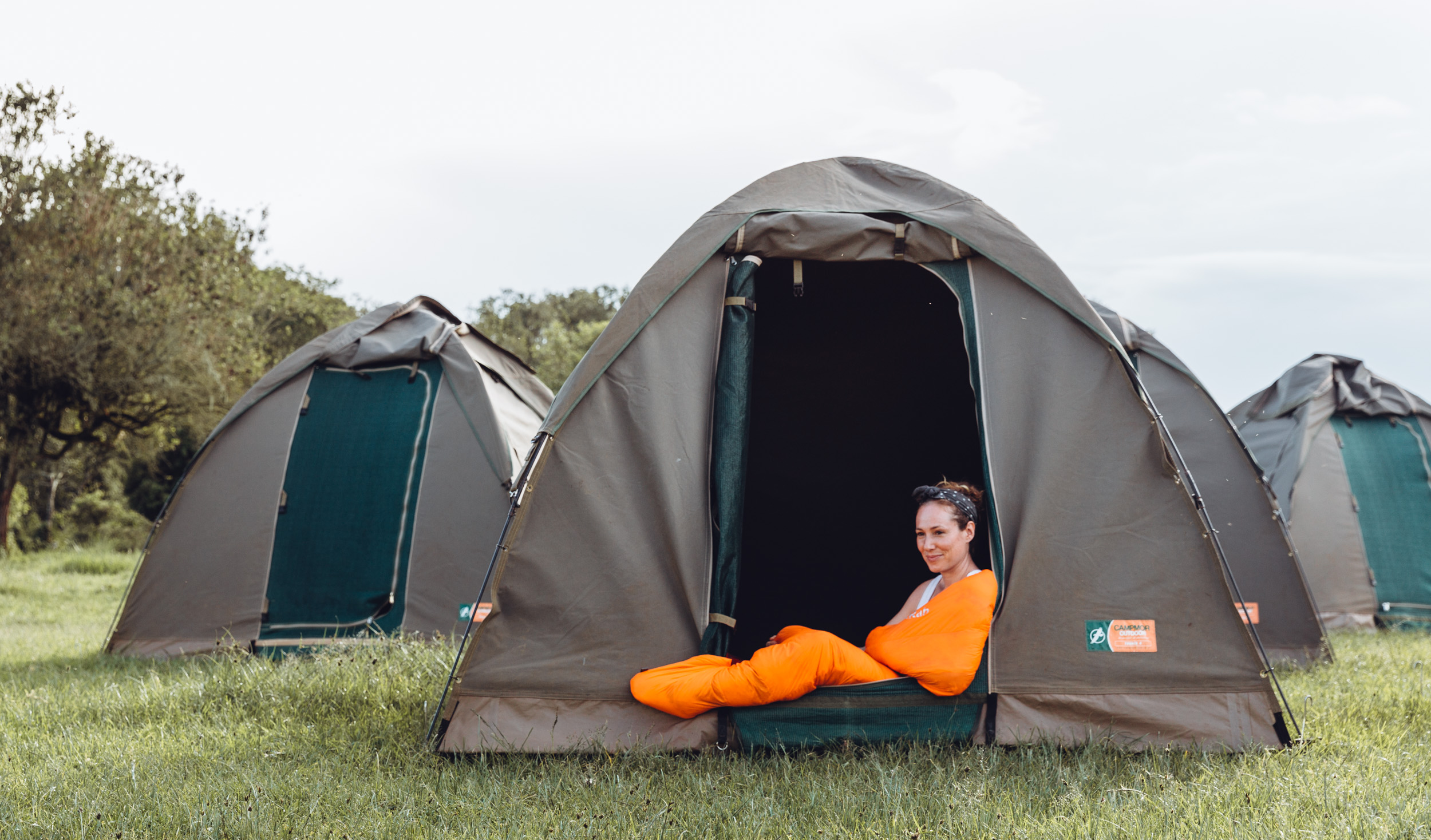Want to start couchsurfing but not sure what to do?
Here's our beginner's guide to how to get started and couchsurfing tips to make the most of the experience!
It's not a surprise that couchsurfing is so popular amongst the backpacker and traveller community.
Although staying at a complete stranger's home may not appeal to all of us on the road, there's no doubt that the opportunity to meet locals, save money and feel part of a strong global network can have its appeals. We've met a 65-year old Liverpudlian male traveller who hosted in the UK and surfed in Colombia, a Spanish-German vegan couple who host in Chile and travel worldwide and a friendly Moroccan chap who hosts foreigners on the coast to improve his English - as well as many solo travellers around Europe and Latin America who wouldn't travel in any other way.
However, in a world where apps, crowd sourcing and location independence are common place to millennials - rather than strange concepts - newcomers may be surprised to learn that couchsurfing was actually one of the internet trail blazers when it comes to the gift/sharing economy (and a proper social network at that!). And with a website that's been live since 2003, it's understandable that there are some die-hard adherents who have been around from the beginning, ways to do couchsurfing right, and ways to do it very very wrong.
So, if you're just starting out on your couchsurfing journey, or have never given it a go before, here are five essential things to know.
what is couchsurfing exactly?
For solo travellers, it offers company, someone to break bread with and share tales from your travels, whilst gaining an insight on their way of life and views of the world. And, importantly, a place to stay in a new city or country.
'Couch surfing' or 'Couchsurfing' (we go with the latter) originally meant crashing at someone's home for a few nights. However, these days it's shorthand for the social network people use when travelling to find accommodation. Today, Couchsurfing.com has over 12 million members across 200,000 cities and remains free to use.
In a nutshell, you have 'couchsurfers' and 'hosts'. Before a surfer arrives in a new place, they can browse the website to check out the hosts and their profiles / references. If you like the sound of them, you can send a personalised message asking whether you can stay when you visit. If they're available and happy to host you then, at no charge, you're all ready to go!
Is Couch Surfing Free?
Unfortunately, couch surfing is no longer completely free (apparently they lost too much money during the pandemic and needed to claw some back).
Whilst you don’t have to pay to stay with a host, you do have to pay a fee to use the platform. This price varies depending upon whether you pay a monthly or annual membership.
The cost is currently $3 per month, or you can get an annual subscription for $14.99 per year.
The annual fee works out at about $1.25 per month, so if you’re planning a long trip or using couch surfing frequently, then it’s best to just sign up for a year.
it's won't always be a couch
Although you may very well end up crashing on a sofa, a spare bedroom or blow-up mattress in the living room is just as likely! So, if comfort is your main concern, don't worry too much - couchsurfing may still an option for you.
it's free accommodation, but that's not why you do it
As we mention above, whilst the couchsurfing platform is no longer free, there is still no payment made to your host for your actual stay. That free access is a fundamental aspect of the couchsurfing community.
However, a common misconception amongst newbies to couchsurfing (including us!) is that, basically, it's a way to save money on your travels which would otherwise go on hostels, hotels or Airbnb.
Although, on face value, couchsurfing will save the surfers a nightly fee in exchange for a bed (there is no monetary exchange for couchsurfing) and allow your money to stretch a lot further on a trip, that is fundamentally not what the community is about.
In fact, if saving a few pounds is your only reason for giving it a go, you may well find offers to host you drying up quickly. After all, there has to be some incentive for hosts who are willing to open up their homes and share it with people from around the world and, if you're turning up, being rude and treating their home like a hotel, why would they recommend hosting you to anyone else?
you need bring a gift or cook a meal
The main way to show that you get couchsurfing and to start on the right foot when you turn up at a host's front door is to bring a small gift or gesture.
It could be a bottle of wine, it could be the promise to cook a meal that evening or it could be a little something from your home country.
As the Broke Backpacker told us, often these small acts and gestures of appreciation can actually add up to cost more than you would have spent on a dorm bed for a few nights. However, they are essential to building those friendships and experiences which keep the community going and growing.
This is not Airbnb and you have to consider that your host has expectations of how they want the stay to go and how they interact with guests - and you want to leave a great impression.
set up a proper profile
If you've been trying to get into couchsurfing, but finding that you aren't getting many positive responses from hosts, then there's probably something wrong with your profile and/or how you're messaging them.
As with the point above, a host needs to 1) want to welcome you into their home 2) feel that you're a good person hang out with and 3) trusts that you're not a murderer on the run or a moocher in search of free digs. Also, if they're in a popular travel destination, they must get hundreds of messages every week from prospective surfers and won't be able to (or want) to accept everyone.
So, invest some time in making your profile readable and something which reflects your interests and personalities. Have lots of photos, tell them about you and what you like but, above all be honest and open.
If you are still struggling to get positive responses, which means you aren't able to get any references from hosts, then Couchurfing has offered a new donation-based verification system to make newbie surfers more attractive to hosts.
Once a host has shown an interest, or accepted you, then keep in touch. Emailing, Whatsapping or calling in the run up to your stay is sensible and should make the whole process easier for everyone involved.
Update // You can now go one step further and get your profile/identity verified by supplying your address, government ID, phone number (alongside by paying the membership fee).
Whilst this doesn’t guarantee you’ll be accepted, being able to prove you’re who you say you are massively increases your chance. Knowing your host is verified too also goes someway to allaying concerns that you may share an apartment with a crazy person!
it's important to think about safety
Safety is obviously one of the main concerns of newbie surfers - and that's totally understandable. Although the marketing puts everyone forward as 'a friend you haven't met yet', surfers and hosts are fundamentally complete strangers. Ensuring you think about safety, and prepare accordingly, is not only sensible but fundamental to ensure that you enjoy couchsurfing and have only positive experiences. Here are some key steps to take:
If you're new, go for experienced and verified hosts only. Why bother trying somebody untested?
Understand what the accommodation on offer is. Is it a couch in a living room or a private room with a lock? Will you be happy there?
Is the accommodation in a good area of a city?
Read references of hosts from previous guests - has everyone had a positive experience? Does the host expect guests to party like crazy each night of their stay? Does he/she expect you to hang out with them all the time?
Trust your gut - if the host doesn't sound like a good fit, or their tone/behaviour begins to change once you arrive, then just leave.
Make sure someone knows exactly where you're staying.
Unfortunately, nasty people do exist and you won't like everyone you necessarily meet on your travels or when you surf. However, follow these steps and trust your instincts and, hopefully, you will only ever have positive experiences.
If you're a solo female traveller, then definitely read our interview with a very experienced solo female couchsurfer for her tips and experiences.






















